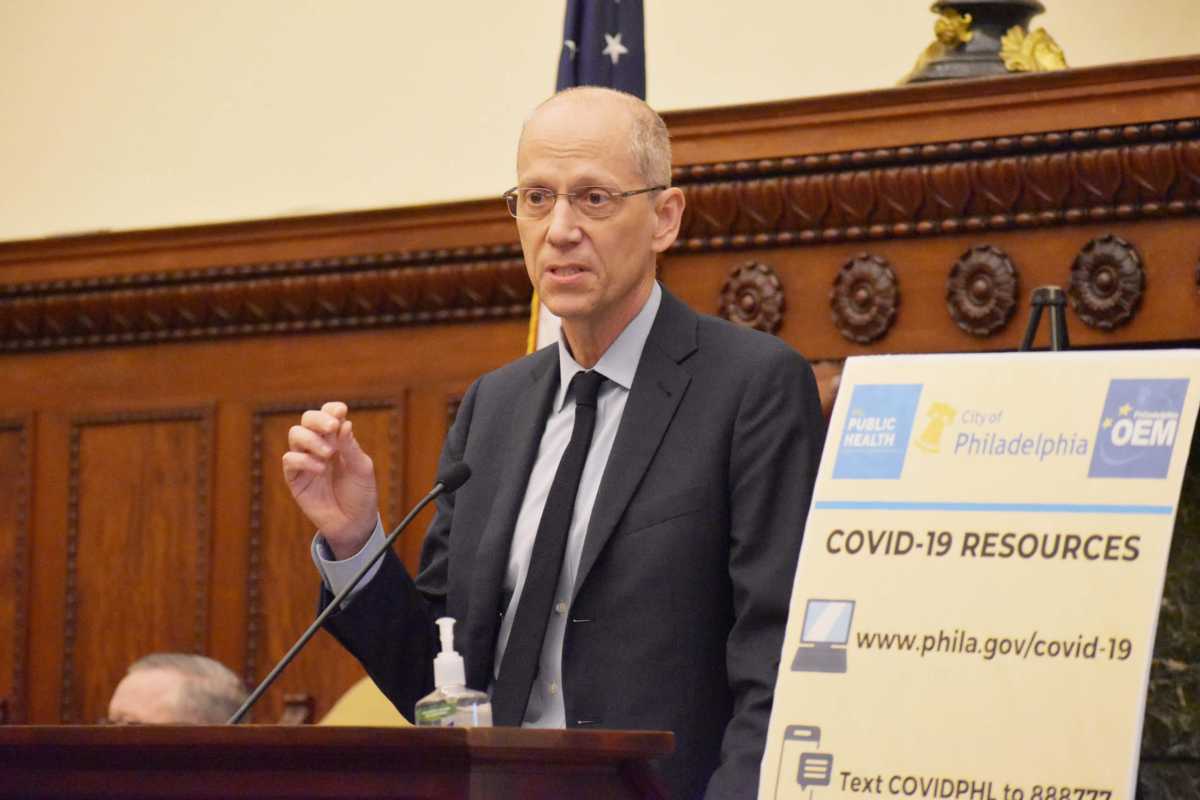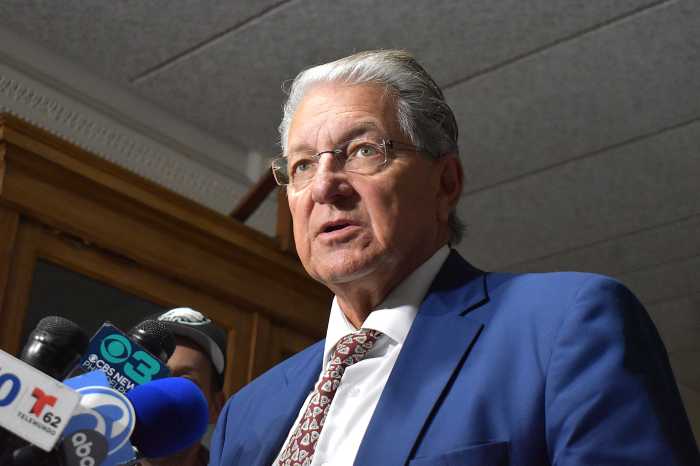Officials said Thursday that Philadelphia will in the “not-too-distant future” move to the least restrictive phase of Gov. Tom Wolf’s coronavirus reopening plan, but it’s unlikely to happen before the end of the month.
A county can move to the “Green Phase” of the state’s plan if COVID-19 cases haven’t spiked after two weeks in the “Yellow Phase,” which the city entered last Friday.
Health Commissioner Thomas Farley said the earliest Philadelphia could move to green would be June 26 after authorities analyze data from the previous 14 days.
“I think it’s unlikely, I would say, that we would be ready three weeks from last Friday, but I am pleased with the progress we’re making,” he said.
In the Green Phase, barber shops, gyms, theaters and restaurants can operate at 50 percent capacity, according to Wolf’s plan.
The city reported 156 new coronavirus cases Thursday and one additional fatality, bringing Philadelphia’s toll to 1,434.
Outbreaks in nursing homes have declined dramatically. Farley said a majority of nursing homes haven’t had a resident test positive in two weeks, and only 10 new cases have been reported in assisted-living facilities during that period.
More than half of Philadelphia’s virus-related deaths have occurred in nursing homes.
Hospital admissions are also down about 70 percent compared to the pandemic’s peak in the city. Nearly 600 patients with the virus are currently hospitalized in southeastern Pennsylvania, including 322 in Philadelphia.
There’s no evidence that there’s been an uptick in cases since protests erupted in Philadelphia May 30 in response to the death of George Floyd. Farley said the demonstrations could serve as “a model for how we deal with outdoor gatherings in the future.”
“Now, it’s still early,” he said. “We’re going to have to watch this for at least another week, but so far, so good.”
Restaurants with patios and other outdoor areas will be allowed to serve customers Friday, and city leaders released regulations Thursday that will allow others to set up tables on sidewalks, streets and nearby lots.
Establishments will have four options depending on logistics: sidewalks, curbside (replacing street parking) and parking lots and nearby vacant lots.
A pilot program is also being rolled out which will allow businesses to close a street to traffic for up to 60 hours to allow for outdoor dining.
Applications for all of the options will be available on the city’s website Friday at 5 p.m., and the city will begin reviewing them Monday.
Officials hope to have a three-day turnaround in deciding on applications for sidewalk and curbside dining, Deputy Managing Director Mike Carroll said. Getting approved for a street closure is expected to take five to 10 days.
Restaurants can operate outdoor dining from 8 a.m. to 10 p.m. and can be shut down if the situation is a nuisance to neighbors, according to the Mayor’s Office.
Businesses can apply for more than one option; however, they will not be able to use it to go above their legal occupancy under normal circumstances, Carroll said.
A temporary lot closure permit costs $30. All the other options are free.
In addition, the city on Thursday lifted all remaining restrictions on the construction industry. Weekend residential construction, demolition of attached properties and non-emergency work inside occupied dwelling units is now permitted.
Contractors still have to abide by social distancing protocols.
In other coronavirus-related news, SEPTA and the Black Doctors COVID-19 Consortium announced a partnership Thursday to facilitate testing of the transit authority’s employees.
Seven SEPTA employees have died from complications associated with the virus, and 288 workers have tested positive.
The BDCC has been offering free COVID-19 testing in neighborhoods around the city. The group began testing workers Thursday at Fern Rock Transportation Center and will be rotating to other SEPTA hubs, including Midvale District, Suburban Station and 69th Street Transportation Center.
“This act by SEPTA could lead the effort for others in the private sector to employ the services of the consortium and that is important,” Councilwoman Cherelle Parker said.


























